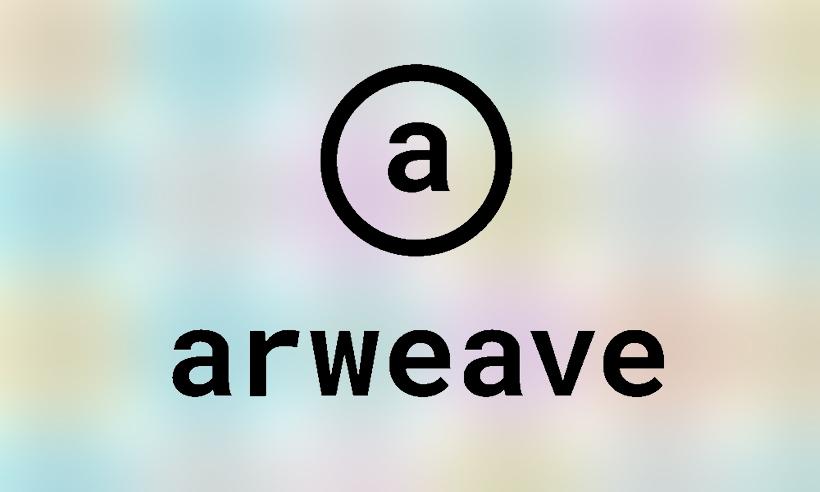Arweave Protocol Review : Permanent Data Storage with Low Fees
Table of contents
What is Arweave?
Arweave is a decentralized protocol that allows you to store data permanently on the internet by paying fees only one time. It connects people who need storage to those people having disk space on their hardware devices. It is designed to provide internet users with permanent, cost-efficient data storage.
Arweave is built differently than any major blockchains such as Ethereum, Cosmos, Solana, etc. It is built on the blockchain-like data structure called blockweave. In blockweave, each block is linked to the previous block and to a recall block (a random block from the history of the blockweave).
The blockweave supports a permanent and decentralized web called the permaweb. It is a collection of websites, data, and decentralized apps (dApps) that can be easily accessed by users through internet browsers. Arweave’s native token AR is used for transactions fees on the network and also used to incentivize miners for storing copies of data and mining new blocks.

How does Arweave Works?

The above diagram shows the structure of the Arweave Protocol.
Similar to traditional blockchains, all the information of websites and applications on the permaweb is stored in the collection of blocks that form blockweave. In a traditional blockchain like Ethereum, each block is linked to its previous block. However, in the case of Arweave’s blockweave, each block is linked to its previous block and another random block from the blockweave history known as its recall block. Recall block is a key element of Arweave’s consensus mechanism, known as PoA.
Here’s how Proof-of-Access works:
Miners provide data storage and also store copies of data stored in the network in exchange for AR tokens. They are responsible for maintaining the blockweave network. Miners have to provide cryptographic proof that they have access to the recall block, then only they can mine or verify a new block. This is the reason, why Arweave’s consensus mechanism is called PoA. Arweave’s goal of long-term data storage is made possible due to miners following the rules set by the proof of access consensus mechanism. When a rare recall block needs to be linked, miners storing that rare block have to face less competition against other miners, and the probability of receiving block reward increases. Thus, for miners who also store rare blocks, their chances of getting more rewards increase in the long term. It is not compulsory for miners to store all the data in the network.
Miners can choose which block or transactions, they would like to store. Miners can also create their own “content policy” which will restrain certain information from being stored on their hardware devices. Whenever data distribution takes place, it scans the content policies of each miner, and if the content is restricted by the miner’s content policy, that particular data will be not accepted by the miner’s transaction pool.
Tokenomics of Arweave
AR tokens are used for payment by users for storing their data permanently on the Arweave network. AR tokens are also received by miners for storing data and mining new blocks. All the transaction fees of the Arweave network do not go to miners at one time. The majority of transaction fees go to a storage “endowment”, fees are gradually disbursed to miners over time from this endowment. User pays fees only one time and interest accrued on it is distributed to miners. This incentivization cliff measure is taken to minimize the AR token volatility while also preserving the long-term survival of the mining-based consensus mechanism.
Arweave's blockweave data structure uses Proof of Access as a consensus mechanism. AR tokens have a maximum supply of 66 million. AR tokens have a current circulating supply of 50 million. On the network's launch, 55 million tokens were produced in the genesis block, and 11 million tokens were later added into circulation for mining rewards.
Arweave conducted an initial coin offering of 8.7 million tokens on 6 June 2018. Over 30,000 unique individuals applied to participate in Arweave’s ICO. Of the whitelisted individuals, only 1,800 individuals were selected to become participants in the network.
Conclusion
Arweave is solving the major problem of data storage, data sharing, and data identity. Due to Arweave’s amazing features, now internet users don't need to fear that their content can get removed or censored by any major entity. It is the first time that internet users are getting Permanent data storage with such low fees. Arweave has done partnerships with many blockchains and decentralized applications such as Solana, Deso, Near. All of these partners will store their data permanently on Arweave.

